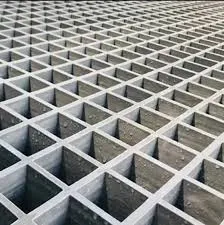
-
 Afrikaans
Afrikaans -
 Albanian
Albanian -
 Amharic
Amharic -
 Arabic
Arabic -
 Armenian
Armenian -
 Azerbaijani
Azerbaijani -
 Basque
Basque -
 Belarusian
Belarusian -
 Bengali
Bengali -
 Bosnian
Bosnian -
 Bulgarian
Bulgarian -
 Catalan
Catalan -
 Cebuano
Cebuano -
 China
China -
 China (Taiwan)
China (Taiwan) -
 Corsican
Corsican -
 Croatian
Croatian -
 Czech
Czech -
 Danish
Danish -
 Dutch
Dutch -
 English
English -
 Esperanto
Esperanto -
 Estonian
Estonian -
 Finnish
Finnish -
 French
French -
 Frisian
Frisian -
 Galician
Galician -
 Georgian
Georgian -
 German
German -
 Greek
Greek -
 Gujarati
Gujarati -
 Haitian Creole
Haitian Creole -
 hausa
hausa -
 hawaiian
hawaiian -
 Hebrew
Hebrew -
 Hindi
Hindi -
 Miao
Miao -
 Hungarian
Hungarian -
 Icelandic
Icelandic -
 igbo
igbo -
 Indonesian
Indonesian -
 irish
irish -
 Italian
Italian -
 Japanese
Japanese -
 Javanese
Javanese -
 Kannada
Kannada -
 kazakh
kazakh -
 Khmer
Khmer -
 Rwandese
Rwandese -
 Korean
Korean -
 Kurdish
Kurdish -
 Kyrgyz
Kyrgyz -
 Lao
Lao -
 Latin
Latin -
 Latvian
Latvian -
 Lithuanian
Lithuanian -
 Luxembourgish
Luxembourgish -
 Macedonian
Macedonian -
 Malgashi
Malgashi -
 Malay
Malay -
 Malayalam
Malayalam -
 Maltese
Maltese -
 Maori
Maori -
 Marathi
Marathi -
 Mongolian
Mongolian -
 Myanmar
Myanmar -
 Nepali
Nepali -
 Norwegian
Norwegian -
 Norwegian
Norwegian -
 Occitan
Occitan -
 Pashto
Pashto -
 Persian
Persian -
 Polish
Polish -
 Portuguese
Portuguese -
 Punjabi
Punjabi -
 Romanian
Romanian -
 Russian
Russian -
 Samoan
Samoan -
 Scottish Gaelic
Scottish Gaelic -
 Serbian
Serbian -
 Sesotho
Sesotho -
 Shona
Shona -
 Sindhi
Sindhi -
 Sinhala
Sinhala -
 Slovak
Slovak -
 Slovenian
Slovenian -
 Somali
Somali -
 Spanish
Spanish -
 Sundanese
Sundanese -
 Swahili
Swahili -
 Swedish
Swedish -
 Tagalog
Tagalog -
 Tajik
Tajik -
 Tamil
Tamil -
 Tatar
Tatar -
 Telugu
Telugu -
 Thai
Thai -
 Turkish
Turkish -
 Turkmen
Turkmen -
 Ukrainian
Ukrainian -
 Urdu
Urdu -
 Uighur
Uighur -
 Uzbek
Uzbek -
 Vietnamese
Vietnamese -
 Welsh
Welsh -
 Bantu
Bantu -
 Yiddish
Yiddish -
 Yoruba
Yoruba -
 Zulu
Zulu
frp customized product
Exploring FRP Customized Products A Modern Solution for Diverse Applications
Fiber-Reinforced Polymer (FRP) has become an essential material in various industries due to its unique properties, including high strength-to-weight ratio, corrosion resistance, and design flexibility. As demand for specialized applications grows, the customization of FRP products has emerged as a key solution, allowing manufacturers to meet the specific needs of different sectors, such as construction, automotive, aerospace, and renewable energy.
What is FRP?
FRP is a composite material made by combining a polymer matrix with reinforcing fibers, such as glass, carbon, or aramid. The result is a lightweight yet incredibly strong material that can withstand harsh environmental conditions and extensive loads. This makes FRP an ideal choice for applications requiring durability and resilience.
Advantages of FRP Customized Products
1. Tailored Specifications One of the most significant advantages of FRP customized products is the ability to meet specific performance requirements. Whether it's a unique shape, size, or strength specification, manufacturers can develop FRP products that cater to individual project demands.
2. Lightweight Design The lightweight nature of FRP products can lead to reduced transportation costs and ease of installation. This is particularly beneficial in sectors like aerospace and automotive, where weight reduction directly contributes to improved fuel efficiency and performance.
3. Corrosion Resistance FRP's inherent resistance to chemical and environmental degradation means that customized products are ideal for use in harsh environments, such as marine applications or chemical processing plants. This reduces maintenance costs and prolongs the life of the products.
4. Versatility in Applications FRP can be molded into complex shapes, allowing for innovations in design and function. This versatility finds applications in industries ranging from infrastructure, where FRP beams and columns are used, to consumer products, such as customized sports equipment.
frp customized product

5. Sustainability Many FRP products can be designed to be more environmentally friendly. Manufacturers are exploring bio-resins or recycled materials in the production of FRP, promoting sustainability while still achieving high performance.
Industries Benefiting from FRP Customization
- Construction In the construction industry, FRP is increasingly utilized for reinforcing structures, bridge components, and panels. Custom designs can significantly enhance load-bearing capacity and reduce the overall weight of the structure.
- Transportation The automotive and aerospace sectors benefit greatly from FRP’s lightweight properties. Customized FRP components can lead to improved performance while offering designers the freedom to create aerodynamically efficient shapes.
- Renewable Energy In the renewable energy sector, FRP is used in manufacturing wind turbine blades and components for solar installations. Customization allows these components to be specifically designed to maximize efficiency and minimize environmental impact.
The Future of FRP Customization
As technology advances, the potential for FRP customization continues to grow. Innovations in manufacturing processes, such as 3D printing and advanced computer-aided design (CAD), allow for more precise and unique FRP products. This evolution not only enhances the performance and aesthetics of products but also opens up new markets and opportunities for businesses.
In conclusion, FRP customized products represent a significant advancement in material science, addressing the diverse needs of various industries. Their unique combination of strength, lightweight, and corrosion resistance makes them invaluable in modern applications. As companies continue to recognize the benefits of tailored FRP solutions, we can anticipate further innovations that will transform how we approach design and manufacturing across multiple sectors.
Latest news
-
Exploring the Benefits of Top Hammer Drifter Rods for Enhanced Drilling PerformanceNewsJun.10,2025
-
High-Precision Fiberglass Winding Machine for GRP/FRP Pipe Production – Reliable & Efficient SolutionsNewsJun.10,2025
-
FRP Pipes & Fittings for Shipbuilding - Corrosion-Resistant & LightweightNewsJun.09,2025
-
Premium FRP Flooring Solutions Durable & Slip-ResistantNewsJun.09,2025
-
Premium Fiberglass Rectangular Tanks Durable & Lightweight SolutionNewsJun.09,2025
-
Tapered Drill String Design Guide Durable Performance & UsesNewsJun.09,2025









